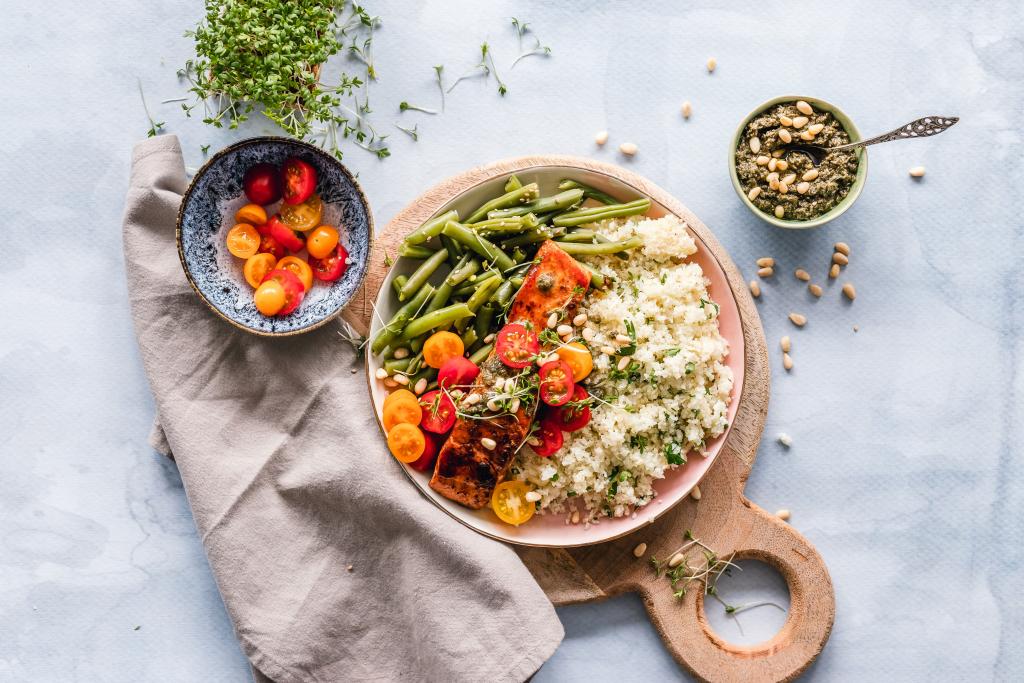
Are you pregnant, or planning to fall pregnant and wondering what is the perfect pregnancy diet?
Even if you’ve never watched what you eat before, it’s likely you’re going to start paying attention to what you’re putting into your body over the next few months.
With advice being thrown at you left, right and centre, it can be difficult to determine facts from fallacy. Thankfully, our Grace Private Dietitian, Sharnie Dwyer is here to help. Sharnie is passionate about helping women nourish their body during pregnancy and has a strong focus on prenatal and postnatal nutrition. Here are Sharnie’s top tips for the perfect pregnancy diet:
There’s an old saying that pregnant women are ‘eating for two’, but it isn’t correct. You may need to eat a little more, but the most important thing is to eat well to ensure your body receives the right nutrients to support your baby’s growth and development.
You should aim to eat a balanced diet, with a focus on eating a variety of foods including:
It’s also vital to drink plenty of water and stay hydrated.
Folate can be found in a variety of foods and it’s recommended both before falling pregnant and the first three months of pregnancy. Folate helps protect against neural tube defects such as Spina Bifida as your baby develops.
Food sources: Spinach, lentils, asparagus, bran flakes, broccoli, brussel sprouts, chickpeas, cabbage, cauliflower, oranges, peas, parsley, whole grain bread, leeks and more.
During pregnancy your body needs more iron to help produce red blood cells that carry oxygen around your body. When you’re pregnant, you need more blood to help your baby grow, and your iron requirements increase.
Food sources: Chicken, meat, seafood, nuts and legumes and green leafy vegetables. Iron from animal sources is absorbed easily into your body. If you follow a plant-based diet you need to combine foods rich in vitamin C to help your body absorb the iron more readily.
Iodine is an important nutrient to help your baby’s nervous system and brain development and helps with the production of the thyroid hormone. Food sources: Eggs, meat, dairy products, seafood, seaweed, potatoes, cranberries, strawberries, bananas and more.
Vitamin D is another essential nutrient required during pregnancy for your baby’s growth and development. Most of your Vitamin D is absorbed through your skin from the sun, but it can also be sourced from a variety of foods.
Food sources: eggs, fish, margarine, milk and other fortified foods.

It is completely safe for you to maintain a plant-based diet while pregnant as long as you are eating a variety of foods and ensure you receive all the key nutrients to help your baby grow and develop.
Some women may need to eat more fortified foods and take supplements to make sure you’re getting everything you and your baby need for optimum health.
When you’re pregnant you’re more at risk of food poisoning and infections, some of which can affect your growing baby.
For this reason, you should avoid foods that may contain the listeria bacteria, such as soft serve ice-cream, deli meats, undercooked meat, raw seafood, unpasteurised food, soft cheeses (brie, camembert, ricotta, blue cheese, feta) and pre-prepared salads from the deli section of your supermarket.
Coffee and tea is fine in moderation, however large amounts of caffeine should be avoided.
To help avoid food poisoning and infection, always:
If you’re pregnant, or planning to start a family soon and would like more information about the perfect pregnancy diet, book an appointment with our Grace Private Dietitian, Sharnie Dwyer today.

